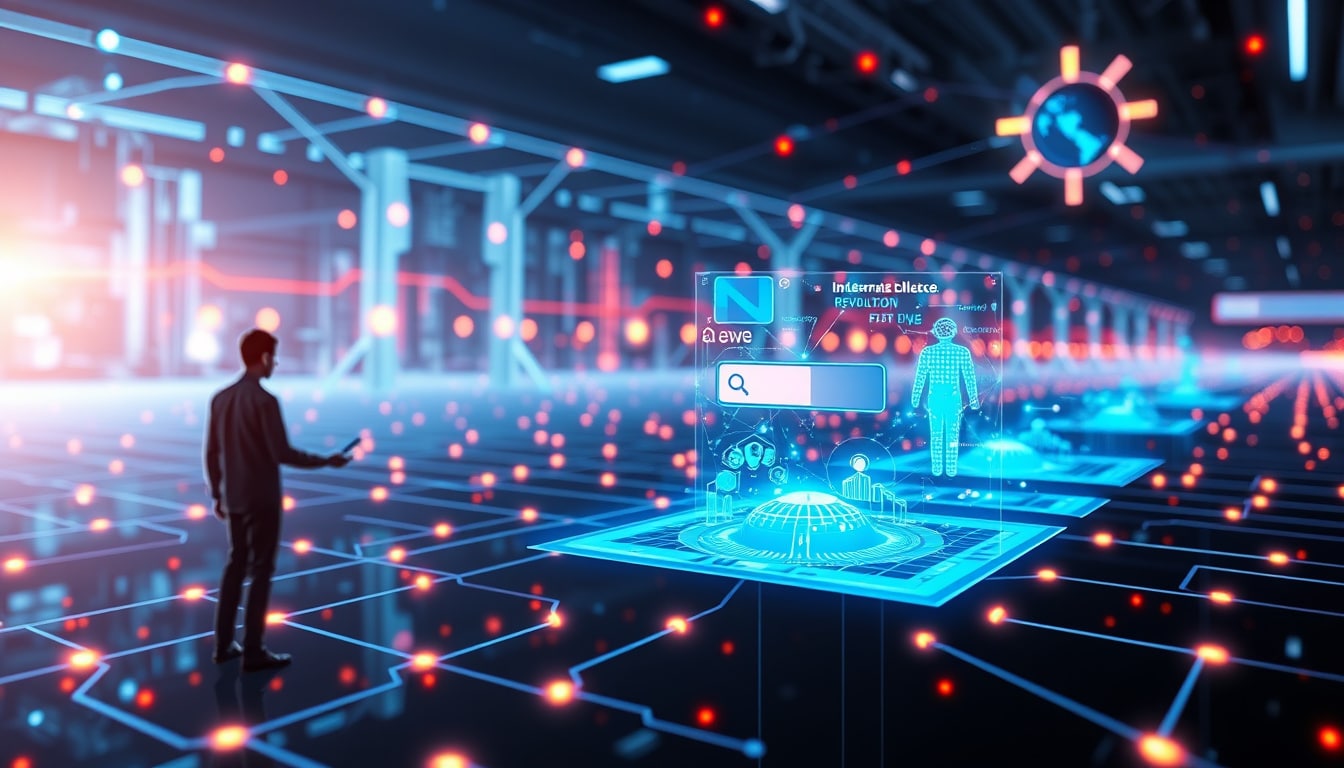In today’s rapidly evolving digital landscape, the term ‘AI Agent use cases’ has become a vital point of discussion among industry experts and businesses alike. An AI agent, in its simplest form, is a software program that utilizes artificial intelligence technologies to perform tasks autonomously on behalf of users. As organizations look to harness the potential of this innovative technology, understanding the myriad of AI agent use cases can be pivotal to driving transformation across various sectors. Whether through enhancing customer engagement, automating administrative tasks, or analyzing complex data, AI agents are reshaping industries and enhancing operational efficiency. In this article, we’ll explore the definition and functionality of AI agents, delve into key industries that are experiencing significant transformation due to these applications, examine how they streamline operations, share real-world examples of successful implementations, and look ahead to future trends in the development of AI agents.
Key Takeaways
- AI agents are sophisticated tools designed to automate tasks and enhance decision-making across various sectors.
- Industries such as healthcare, finance, and logistics are witnessing transformative changes through the adoption of AI agent use cases.
- AI agents streamline operations by reducing costs, increasing productivity, and improving service delivery.
- Successful implementations of AI agents demonstrate their potential to revolutionize customer interactions and business processes.
- The future of AI agents is promising, with advancements expected to further integrate them into everyday business operations.
Understanding AI Agents: Definition and Functionality
AI Agents are intelligent systems designed to perform specific tasks, often interacting with users or other systems in a seamless manner. They leverage artificial intelligence and machine learning to automate processes, streamline workflows, and enhance user experiences. Understanding AI Agent use cases is essential for businesses and individuals looking to optimize their operations or harness the capabilities of AI. These use cases span a variety of industries and applications; for instance, in customer service, AI Agents can handle inquiries, manage bookings, and provide support, effectively reducing the workload for human agents. In the realm of finance, AI Agents can analyze market trends and help investors make informed decisions. Moreover, platforms like Orb AI are pioneering the development of customizable AI Agents, allowing users to choose from pre-made templates or create tailored agents without the need for coding. With its innovative features, including a comprehensive AI aggregator that collects and synthesizes data from leading LLM models, Orb AI empowers users to leverage the full potential of AI Agents effectively.
Key Industries Transforming with AI Agent Use Cases
As artificial intelligence continues to revolutionize various sectors, numerous industries are discovering innovative AI Agent use cases that streamline operations and enhance productivity. In healthcare, for example, AI agents are being employed to analyze patient data and provide personalized treatment recommendations, significantly improving patient outcomes. Meanwhile, in the financial sector, AI agents are automating customer service interactions, offering real-time support, and processing transactions more efficiently. Retail businesses are utilizing AI agents for inventory management and personalized marketing, ensuring that consumers receive the best possible shopping experience. The Orb AI project is at the forefront of this evolution, providing a comprehensive platform where users can explore pre-made AI Agents or develop custom solutions effortlessly. By aggregating data from major LLM models, Orb AI enables users to tap into a wealth of information tailored to their specific needs, demonstrating the transformative potential of AI Agent use cases across a range of industries.
‘The greatest danger in times of turbulence is not the turbulence; it is to act with yesterday’s logic.’ – Peter Drucker
Enhancing Efficiency: How AI Agents Streamline Operations
In today’s fast-paced digital landscape, organizations are constantly in search of innovative solutions to enhance efficiency and streamline operations. One of the most promising developments in this regard is the emergence of AI Agent use cases. These intelligent systems leverage the capabilities of artificial intelligence to automate routine tasks, analyze data, and make informed decisions, significantly reducing the workload on human employees. For instance, businesses can deploy AI Agents for customer support, where they can handle inquiries and resolve issues, allowing human agents to focus on more complex problems. Similarly, AI Agents can be utilized in data analysis, compiling insights from vast data sets far more quickly than traditional methods. With the launch of platforms like Orb AI, which features an AI Agent launchpad, users can easily create and implement custom AI Agents without needing extensive coding knowledge, thus democratizing the process of AI integration. As these systems continue to evolve, organizations that adopt AI Agent use cases are not only streamlining their operations but also gaining a competitive edge in their respective industries.
Real-World Examples of Successful AI Agent Implementations
Artificial Intelligence (AI) has rapidly transformed various sectors, and the use of AI agents has emerged as a groundbreaking solution to enhance productivity and efficiency. Real-world examples of successful AI Agent implementations illustrate their versatility across different industries. For instance, in customer service, companies like Zendesk leverage AI agents to provide instant assistance and resolve queries without human intervention. This not only improves response times but also reduces operational costs. In the healthcare sector, AI agents are utilized to schedule appointments, manage patient data, and even assist in diagnostic processes, facilitating smoother healthcare delivery. Another notable use case can be seen in the financial industry, where AI agents assist with fraud detection by analyzing transactions in real-time, significantly reducing the risk of financial crimes. As seen in these examples, AI Agent use cases are diverse, showcasing their potential to revolutionize how businesses operate and engage with their clients. Projects like Orb AI are advancing this frontier further by providing users with customizable AI agents, enabling anyone to harness the power of AI without needing extensive technical knowledge. For more about developing your own AI agent, visit www.orbai.io.
Future Trends: The Evolving Role of AI Agents in Various Sectors
As we look towards the future, the evolving role of AI agents across various sectors presents exciting opportunities and innovative use cases. AI agents are becoming increasingly prevalent in industries such as healthcare, finance, and customer service, where they enhance efficiency and drive better decision-making. For instance, in healthcare, AI agents streamline patient data management, enabling medical professionals to access and analyze relevant information swiftly. In finance, these agents can assist in predictive analytics, offering insights that help in formulating strategies for investments. Moreover, customer service is seeing a transformation through AI agent use cases that include automated responses and personalized interactions, ultimately improving user experience. One platform leading the way in harnessing the power of AI agents is Orb AI. By providing a unique AI Agent launchpad, Orb AI allows users to either select from pre-made AI templates or create their custom AI agents without any coding knowledge, making sophisticated technology accessible to everyone. This innovative approach not only democratizes AI but also enhances its application across various sectors, showcasing the potential of AI agents in shaping the future.
Frequently Asked Questions
What is an AI agent and how does it function?
An AI agent is a software program that uses artificial intelligence to perform tasks, make decisions, and solve problems autonomously. It functions by analyzing data, learning from experiences, and executing actions to achieve specific goals.
Which industries are most affected by AI agent use cases?
Key industries transforming with AI agent use cases include healthcare, finance, retail, manufacturing, and logistics among others. These sectors leverage AI agents to enhance productivity and improve customer experiences.
How do AI agents streamline operations within organizations?
AI agents streamline operations by automating repetitive tasks, optimizing workflows, providing data analysis, and improving communication. This leads to greater efficiency, reduced costs, and increased productivity.
Can you provide examples of successful AI agent implementations?
Yes, examples include virtual assistants in customer service, predictive maintenance in manufacturing, and AI-driven financial analysis tools. Companies like Amazon and Google have effectively integrated AI agents to enhance their operations.
What are the future trends regarding the adoption of AI agents?
Future trends suggest that AI agents will become more advanced, integrating with IoT devices, improving in natural language processing, and enhancing their decision-making processes across diverse sectors, leading to more personalized and efficient services.
Join the Orb AI Presale and Benefit from the AI Global Revolution.
Price Increases at Every Stage, Get in Now For Maximum Benefits.
https://orbai.io







